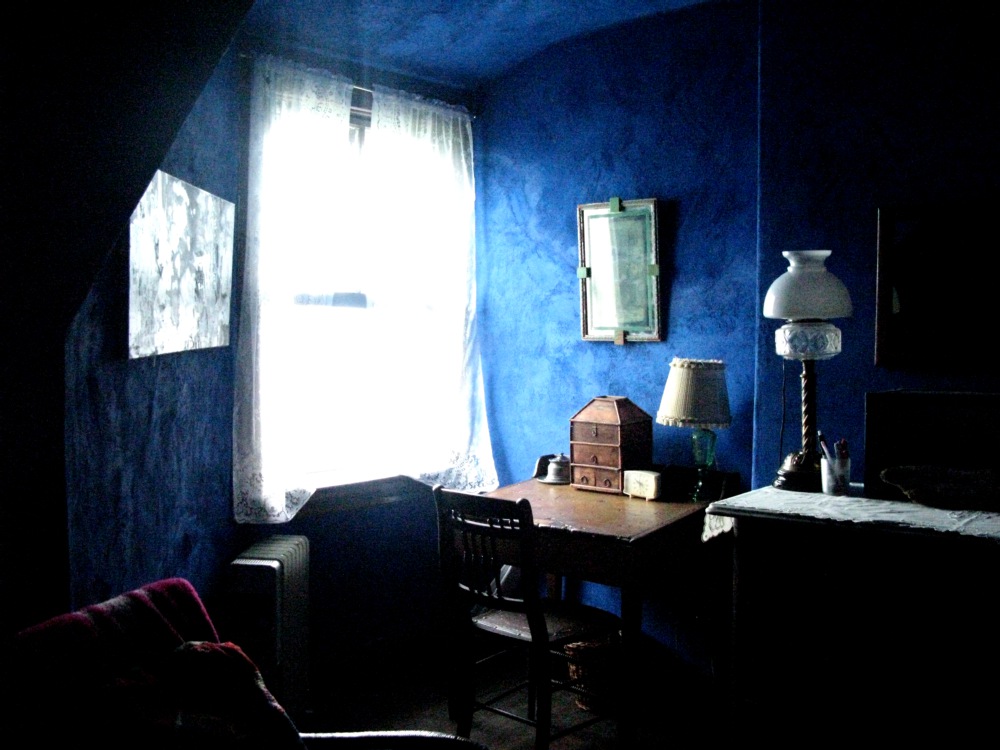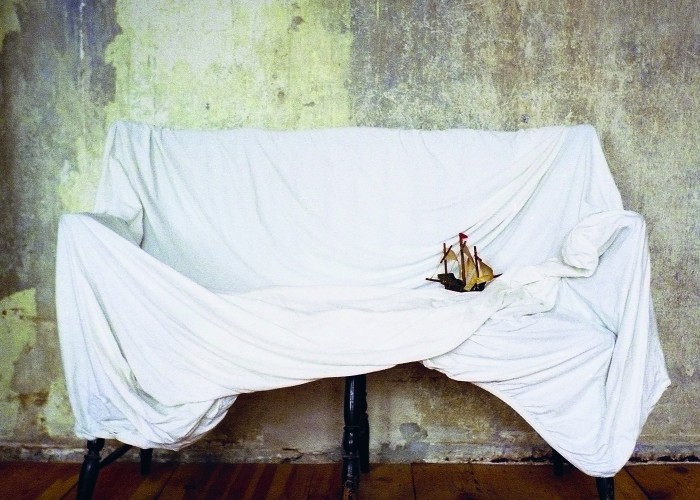Natanael’s Notebook
Veronica Stigger
translated by Ramon Stern and Chris Meade
Opalka entered the small room in his son Natanael’s house and walked to the window, under which was a square wooden table, one of its sides pressed against the wall. On top of the table was a legal pad with a hard red cover, closed, a pot of ink—also red—and a pen. He sat down on the straw chair and opened the journal, where the following had been written:
Making an old book
a book of voyages
with pages that unfold
The story will start in a big city
—in a metropolis—
or by the sea
It will be the story of a lone man
an old man
a tired man
The man will be about sixty years old
wear a three-piece suit and two-tone shoes
and he’ll have a chimpanzee
His chimpanzee will be huge
the same size as my character
tall and strong like a Scandinavian
It will have light gray fur
(and no one come bother me, saying
that chimpanzees don’t have light gray fur
If I want my chimpanzee
to have light gray fur
it will)
Its fur will be smooth and shiny
like a shaggy rug
the kind they only have in the South
It will have slanted eyes
sparkly and blue
like those of my character
The man and the chimpanzee will be great friends
(perhaps lovers)
and sleep in the same room
The chimpanzee will have a double bed
and the man, a conventional single
And there will be no woman in the story
The two will be very attached
will go to the general store together
to the market
to plazas
restaurants
the movies
the dentist
(the chimpanzee will have a gold tooth)
and to the hairdresser
who will care with the same devotion
for the man’s blonde hair
and the chimp’s light gray fur
One day the man will need to travel
He’ll have dreamed that there is a secret
that must be revealed
—the secret of his origins
hidden in a small wooden box
with a mother of pearl lid—
The secret will be on the other side of the country
of this immense country
that he believes to be his
He’ll take a train
—no!—
he’ll take a ship
A Brazil Lloyd steamer
where time will pass slowly
and the man will think he’s drifting toward hell
The chimp won’t be allowed to go
“It will be a long, unpleasant journey
I wouldn’t put you through it.”
But the chimp will not listen
He’ll lock himself in a trunk
without the man noticing
Arriving at his destination
the man will open his baggage
and see the chimpanzee
inside the trunk
doubled over
in the fetal position
head tilted up
eyes closed
mouth open
in its rigid hands
a small wooden box
with a mother of pearl lid
He’ll fall to his knees
beside the trunk
holding the chimpanzee with all his might
His head will fall
over the corpse
of his best friend
His blond hairs will mix in
with the light gray fur—once lovely and alive
now dull and lifeless
The writing—rounded, almost childish, with big letters slanting gently to the left—was suddenly interrupted. A dark red spot spread across the page, forming a strange shape reminiscent of a corpse laid out on the ground. Stunned, Opalka closed the notebook, got up, and left the room.
* *
Read this in Portuguese
* *
Image: Marisela LaGrave
[ + bar ]
The Invisible Mourner
Ken Harvey
Gordon’s cold had gone deeper, his breathing raspy and heavy. He had just made an appointment to see his doctor later that afternoon... Read More »
Arrebato [madrid]
Juan Soto Ivars
I used to live in Madrid, but now I only go when I’m able, and feel like it. When I get there I perform certain... Read More »
Travelers to Buenos Aires
Lucas Mertehikian translated by Jennifer Croft
The history of the Americas has always been inseparable from the notion of travel, and Argentina is no exception to this... Read More »
The Skies of Brasilia: an interview with João Almino
Jonathan Blitzer
Jonathan Blitzer: You’re originally from northern Brazil—Mossoró—but your novels bring you to the geographic heart of the country: Brasilia. How did you wind up... Read More »


![Arrebato [madrid]](http://www.buenosairesreview.org/wp-content/uploads/castigado-700x500.jpg)





 sending...
sending...